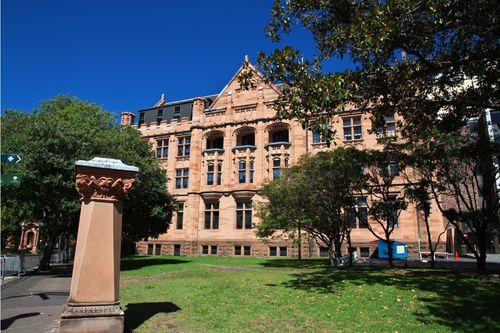Table of Contents
Newcastle is a research-intensive university
Newcastle University (officially the University of Newcastle upon Tyne) is a public research university in Newcastle, England. It has branches in Singapore and Malaysia.
It is a red-brick university and a member of the Russell Group, an association of research-intensive universities in the United Kingdom.
Founded in 1834 and 1871 respectively, The School of Medicine and Surgery (later the College of Medicine), and the College of Physical Science (later renamed Armstrong College), form a larger division of the federal University of Durham. In 1937, the Newcastle colleges merged to form King’s College. Following an Act of Parliament, King’s College got a new name, the University of Newcastle upon Tyne in 1963.
Newcastle University | A brief overview
Newcastle University is among the Global Top 125 universities (QS World University Rankings 2023), with 29,000 students from 140 countries. The university is a founding member of the Russell Group and one of three in the UK to have received a five-plus QS Star rating for overall excellence (2022).
Newcastle’s Science, Agriculture, and Engineering Faculty recently celebrated 150 years of invention and innovation. Today, the university combines world-class academic experience with world-class research. The university is a global leader in key research strengths such as aging and health, data, energy, cities, and the creative arts, and they are pioneering solutions to some of the world’s most pressing challenges. 42% of its research has a world-leading rating in the UK’s Research Excellence Framework 2021.
Newcastle educates for life through 5-star rated courses (QS Stars 2022). Across more than 185 undergraduate and 300 postgraduate degrees, students are challenged and supported to learn from world-class experts and academics.
The university is a partner in the £350 million Newcastle Helix, a global science, technology, research, and education facility. Newcastle has three national innovation centers in the areas of aging, data, and rural enterprises, as well as an Urban Observatory, the largest sensor deployment in the UK, and the world’s largest set of open environmental monitoring data.
The university is proud to be a University of Sanctuary, and it works to create a campus and community-wide culture of welcome, engagement, and safety for all the students.
Newcastle is also among the first universities to sign the UK Government’s Emissions Reduction Pledge and is working to achieve net-zero carbon dioxide emissions by 2030.
The campuses enhance the university’s global reach in Singapore (which offers engineering degrees) and Malaysia (which offers undergraduate medical and biomedical education).
Campus

The university campus is spread across 50 acres and is located in the heart of Newcastle. There is a well-stocked library on campus, as well as the Centre for Physical Recreation and Sport. The Campus for Ageing and Vitality conducts cutting-edge aging research. The Newcastle University Business School is close to St. James’ Park. The School of Computing is in the Newcastle Helix Urban Sciences building. Every building on campus houses world-class teaching and research facilities, such as large classrooms, high-tech lecture theatres, well-equipped laboratories, massive libraries, and large conference rooms. The campus also has first-rate residential and catering facilities. It is the first UK university to open a fully owned international medical campus in Malaysia, the NUMed Campus, which opened in 2011.
Courses

Accounting, finance, agriculture, history, archaeology, architecture, sciences, pharmacy, languages, arts, social sciences, journalism, law, mathematics, philosophy, and psychology are just a few of the graduate and postgraduate degree programs available at Newcastle University.
The university has numerous reputable organizations and institutions as partners from countries such as England, India, the Netherlands, Singapore, Malaysia, China, Japan, Australia, Brazil, and the United States. The university’s Centre for Training and Career Support uses this international link to provide students with a global perspective and professional skills. The university also provides students with excellent job opportunities.
Depending on the subject, most undergraduate courses last three, four, or five years. You can also broaden your focus by selecting one of the well-established Joint Honours degrees or combining two or three from more than 20 courses through the Combined Honours program.
Newcastle University has over 185 undergraduate degrees to choose from, making it convenient to find your ideal course.
Newcastle provides courses in the following study areas
- Arts & humanities
- Computer science
- Business & economics
- Engineering & technology
- Social sciences
- Physical sciences
- Law
- Education
- Clinical, pre-clinical & health
- Life sciences
- Psychology
Popular courses
Newcastle University Business School
- Accounting and Finance BSc Honours
- Accounting and Finance with Placement BSc Honours
- Business Accounting and Finance BA Honours
- Business Management BA Honours
- Economics BSc Honours
- Economics and Business Management BA Honours
Accounting and agriculture
- Accounting and Finance BSc Honours
- Accounting and Finance BSc Honours (London campus)
- Accounting and Finance BSc Honours (London campus, with placement)
- Agri-Business Management BSc Honours
- Agriculture BSc Honours
Rankings
- QS World University Rankings- 122
- QS WUR Ranking by Subject- 135
- Graduate Employability Ranking- 151-160
Alumni
Notable alumni
- Funke Abimbola (award-winning TV contributor, business leader, solicitor, public speaker, diversity campaigner, board member, and patron)
- Kate Adie (well-known journalist and radio presenter)
- Michael Alderson Seminari (director and co-founder of EcoSwell)
- Rowan Atkinson (popular comedian, actor, and screenwriter best known for playing the character of Mr. Beans)
- Andy Bird (British executive and film producer)
- William Butler-Adams (Brompton Bicycles’ CEO)
- Simon Chinn (co-founder of Lightbox, the founder of Red Box Films, and an award-winning British film producer)
Key takeaways
- Newcastle University ranks among the Global Top 125 university (QS World University Rankings 2023), with 29,000 students from 140 countries. The university has a Russell Group membership.
- The university campus spans 50 acres and is located in the heart of Newcastle. Every building on campus has world-class teaching and research facilities, such as large classrooms, high-tech lecture theatres, well-equipped laboratories, and so on.
- Accounting, finance, agriculture, history, archaeology, architecture, sciences, pharmacy, languages, arts, social sciences, and journalism are just a few of the graduate and postgraduate degree programs available at Newcastle University.
Did you find this blog informative? If so, please share your thoughts in the comments section below. Click here to contact us for more information on Newcastle University. We would be happy to assist you with your queries.
Liked this blog? Read next: Lancaster University | Rankings, campus, and more!
FAQs
Q1. Is it difficult to get admission to Newcastle University?
Ans- Newcastle University is one of the most popular universities in the UK, with an acceptance rate of 87% (approximately).
Q2. How long does it take to get a reply from Newcastle University?
Ans- The university might respond to your application within 20 business days.
Q3. What is the IELTS score needed to get into Newcastle University?
Ans- If English is not your first language, you will usually need an IELTS score of 6.5 or higher to study at Newcastle University.







